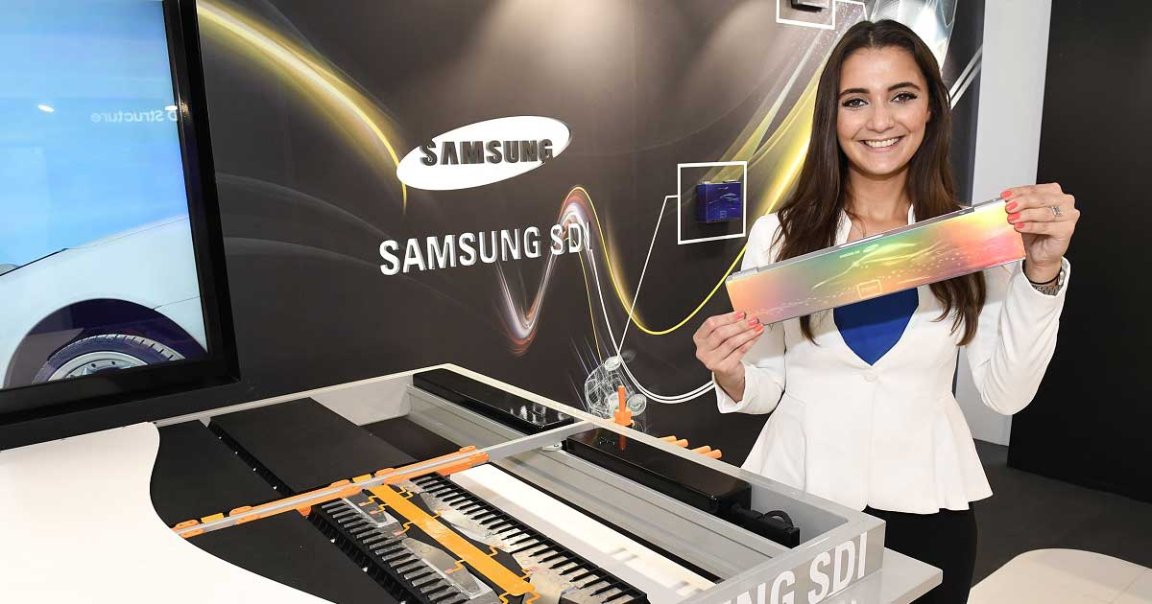
Travel Farther
At the Frankfurt Motor Show (IAA Cars 2017) in Germany earlier this week, Samsung SDI — the battery-focused division of Samsung — unveiled a new multi-functional battery pack capable of increasing the current range of electric vehicles. As explained by the Korean company, the battery enables cars to go between 600-700 kilometers (372-435 miles), provided the right number of modules are installed.
“Its users can change the number of modules as they want as if they place books on a shelf,” says Samsung. “For example, if 20 modules are installed in a premium car, it can go 600 to 700 kilometers. If 10 to 12 modules are mounted on a regular sedan, it can run up to 300 kilometers. This pack is expected to catch the eyes of automakers, because they can design a car whose mileage may vary depending on how many modules of a single pack are installed.”

Electrek explains that automakers like Nissan and GM have been using prismatic cells in their battery packs. Samsung SDI began developing new “2170” cylindrical cells earlier this year, following the footsteps of Tesla, which was the first to do so with their “2170” battery cell.
In Competitive Context
No other details for the new battery pack were disclosed at the event, but it’s still an impressive range compared to what existing electric vehicles are capable of. The Tesla Model S, for example, is expected to have a range of 416 kilometers (259 miles), while the Chevy Bolt has an estimated range of 383 kilometers (238 miles) — a recent test conducted by Consumer Reports says otherwise, however.
Upcoming electric vehicles like the recently revealed 2018 Nissan Leaf are good for 241-257 kilometers (150-160 miles), while the highly-anticipated Tesla Model 3 is said to have a range of 354-498 kilometers (220-310 miles). We’ll have to wait and see how well Samsung’s battery performs in a realistic environment.